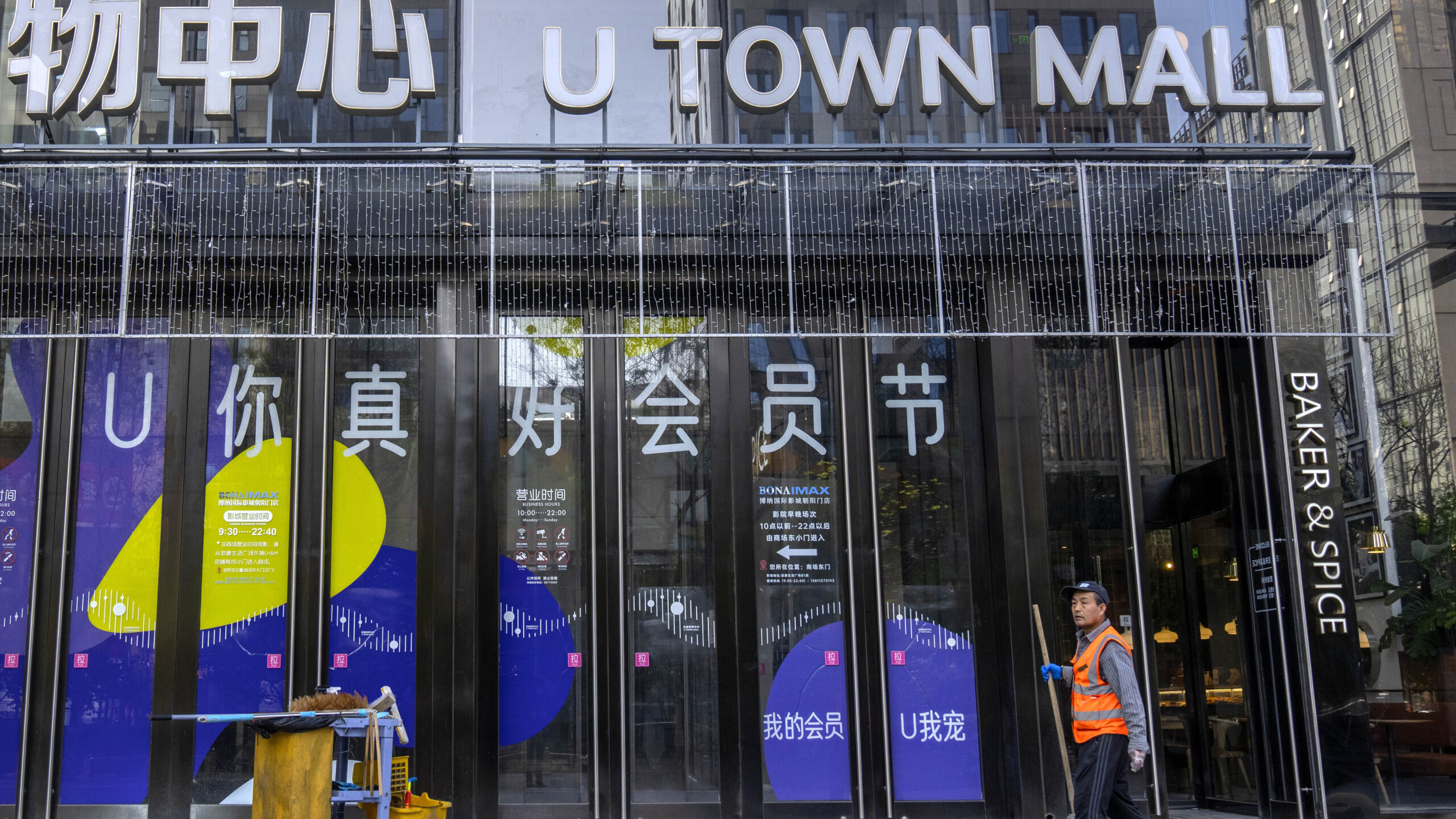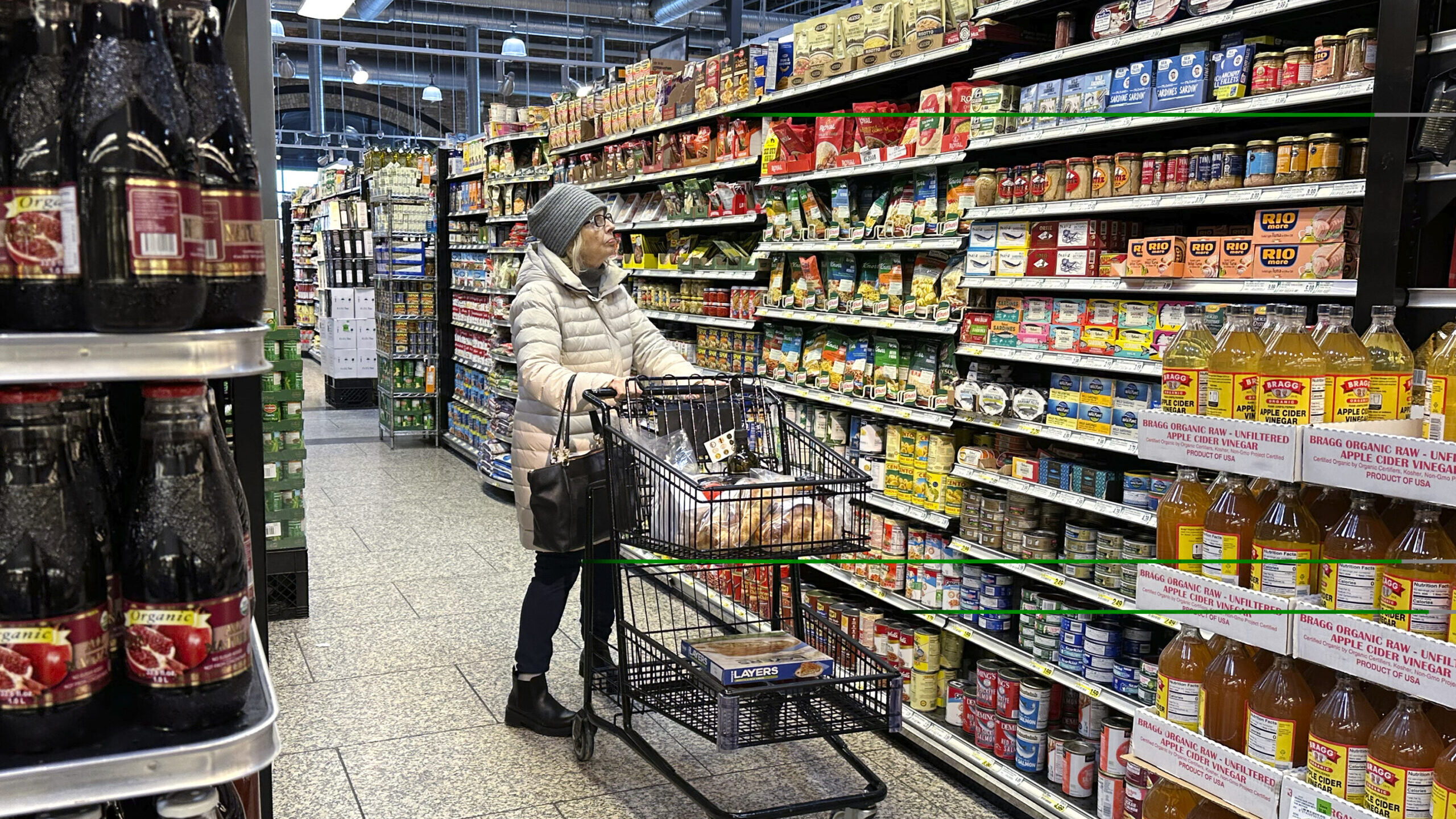China’s economy is in trouble. Here’s what’s gone wrong
Aug 22, 2023, 6:00 AM

A worker mops the floor at the entrance to a shopping mall in Beijing, Tuesday, April 18, 2023. China’s economy grew 4.5% in the first quarter of the year, boosted by increased consumption and retail sales, after authorities abruptly abandoned the stringent "zero-COVID" strategy. (AP Photo/Mark Schiefelbein)
(AP Photo/Mark Schiefelbein)
HONG KONG (CNN) — China has long been the engine of global growth.
But in recent weeks, its economic slowdown has alarmed international leaders and investors who are no longer counting on it to be a bulwark against weakness elsewhere. In fact, for the first time in decades, the world’s second economy is itself the problem.
Hong Kong’s Hang Seng (HSI) Index slid into a bear market on Friday, having fallen more than 20% from its recent peak in January. Last week, the Chinese yuan fell to its lowest level in 16 years, prompting the central bank to make its biggest defense of the currency on record by setting a much higher rate to the dollar than the estimated market value.
The issue is that, after a rapid spurt of activity earlier this year following the lifting of Covid lockdowns, growth is stalling. Consumer prices are falling, a real estate crisis is deepening and exports are in a slump. Unemployment among youth has gotten so bad the government has stopped publishing the data.
To make things worse, a major homebuilder and a prominent investment company have missed payments to their investors in recent weeks, rekindling fears that the ongoing deterioration of the housing market could lead to heightened risks to financial stability.
A lack of resolute measures to stimulate domestic demand and fears of contagion have triggered a new round of growth downgrades, with several major investment banks cutting their forecasts of China’s economic growth to below 5%.
“We downgrade China’s real GDP growth forecast … as the property downturn has deepened, external demand has weakened further, and policy support has been less than expected,” UBS analysts wrote in a Monday research note.
Researchers at Nomura, Morgan Stanley and Barclays had previously trimmed their forecasts.
That means China might significantly miss its official growth target of “around 5.5%,” which would be an embarrassment for the Chinese leadership under President Xi Jinping.
It’s a far cry from global financial meltdown of 2008, when China launched the largest stimulus package in the world and was the first major economy to emerge from the crisis. It’s also a reversal from the early days of the pandemic, when China was the only major developed economy to dodge a recession. So what’s gone wrong?
Property woes
China’s economy has been in doldrums since April, when momentum from a strong start to the year faded. But concerns have intensified this month following defaults by Country Garden, once the country’s largest developer by property sales, and Zhongrong Trust, a top trust company.
Reports that Country Garden had missing interest payments on two US dollar bonds spooked investors and rekindled memories of Evergrande, whose debt defaults in 2021 signaled the start of the real estate crisis.
While Evergrade is still undergoing a debt restructuring, troubles at Country Garden raised fresh concerns about the Chinese economy.
Beijing has rolled out a raft of supportive measures to revive the real estate market. But even the stronger players are now teetering on the brink of default, underscoring the challenges Beijing faces to contain the crisis.
In the meantime, debt defaults at property developers appear to have spread to the country’s $2.9 trillion investment trust industry.
Zhongrong Trust, which managed $87 billion worth of funds for corporate clients and wealthy individuals, has failed to repay a series of investment products to at least four companies, worth about $19 million, according to company statements from earlier this month.
Angry demonstrators even protested recently outside of the office of the trust company, demanding payouts on high-yield products, according to videos posted on Chinese social media seen by CNN.
“Further losses in the property sector risk spilling over into wider financial instability,” said Julian Evans-Pritchard, head of China economics at Capital Economics.
“With domestic funds increasingly fleeing to the safety of government bonds and bank deposits, more non-bank financial institutions could face liquidity problems,” he added.
Local government debt
Another major concern is local government debt, which has soared largely due to a sharp drop in land sale revenues because of the property slump, as well as the lingering impact of the cost of imposing pandemic lockdowns.
The severe fiscal stress seen at local levels not only poses great risks to Chinese banks, but also squeezes the government’s ability to spur growth and expand public services.
Beijing has so far unveiled a steady incremental drip of measures to boost the economy, including interest rate cuts and other moves to help the property market and consumer businesses.
But it has refrained from making any major moves. Economists and analysts have told CNN that is because China has become too indebted to pump up the economy like it did 15 years ago, during the global financial crisis.
Back then, Chinese leaders rolled out a four trillion yuan ($586 billion) fiscal package to minimize the impact of the global financial crisis. But the measures, which were focused on government-led infrastructure projects, also led to an unprecedented credit expansion and massive increase in local government debt, from which the economy is still struggling to recover.
“While there is also a cyclical element to the current downturn that justifies greater stimulus, policymakers appear concerned that their traditional policy playbook would lead to a further rise in debt levels that would come back to the bite them in future,” said Evans-Pritchard.
On Sunday, Beijing policymakers reaffirmed that one of their top priorities was to contain systemic debt risks at local governments.
The People’s Bank of China, the financial regulator and the securities regulator jointly pledged to work together on tackle this challenge, according to a statement by the central bank.
Demographic decline
What’s more, China faces some long term challenges, such as a population crisis, and strained relations with key trading partners such as the United States and Europe.
The country’s total fertility rate, the average number of babies a woman will have over her lifetime, dropped to a record low of 1.09 last year from 1.30 just two years before, according to a recent report by state-owned Jiemian.com, citing a study by a unit of the National Health Commission.
That means China’s fertility rate is now even lower than Japan’s, a country long known for its aging society.
Earlier this year, China released data that showed its population started shrinking last year for the first in six decades.
“China’s aging demographics present significant challenges to its economic growth potential,” said analysts from Moody’s Investors Service in a research report last week.
The decline in labor supply and increased healthcare and social spending could lead to a wider fiscal deficit and higher debt burden. A smaller workforce could also erode domestic savings, resulting in higher interest rates and declining investment.
“Housing demand will fall in the long term,” they added.
Demographics, along with slowing migration from the countryside to urban areas and geopolitical fracturing, are “structural in nature” and largely outside of policymakers’ control, Evans-Pritchard said.
“The big picture is that trend growth has fallen substantially since the start of the pandemic and looks set to decline further over the medium-term,” he said.













